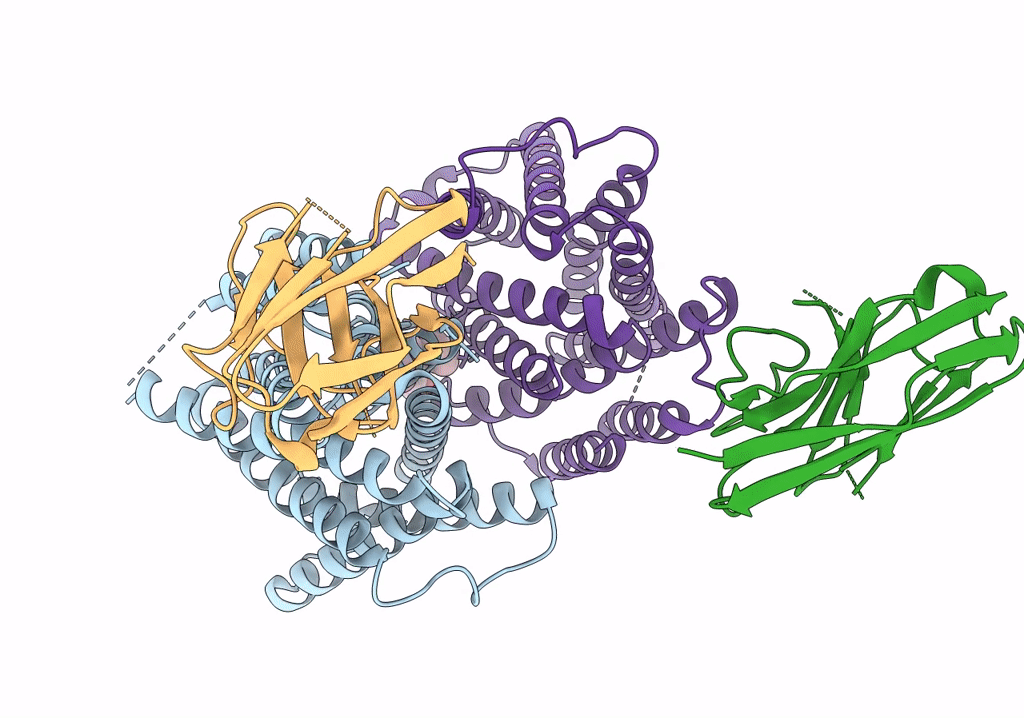
Deposition Date
2021-07-29
Release Date
2022-03-16
Last Version Date
2024-11-06
Entry Detail
PDB ID:
7PAF
Keywords:
Title:
Streptococcus pneumoniae choline importer LicB in lipid nanodiscs
Biological Source:
Source Organism(s):
synthetic construct (Taxon ID: 32630)
Streptococcus pneumoniae TIGR4 (Taxon ID: 170187)
Streptococcus pneumoniae TIGR4 (Taxon ID: 170187)
Expression System(s):
Method Details:
Experimental Method:
Resolution:
3.75 Å
Aggregation State:
PARTICLE
Reconstruction Method:
SINGLE PARTICLE


